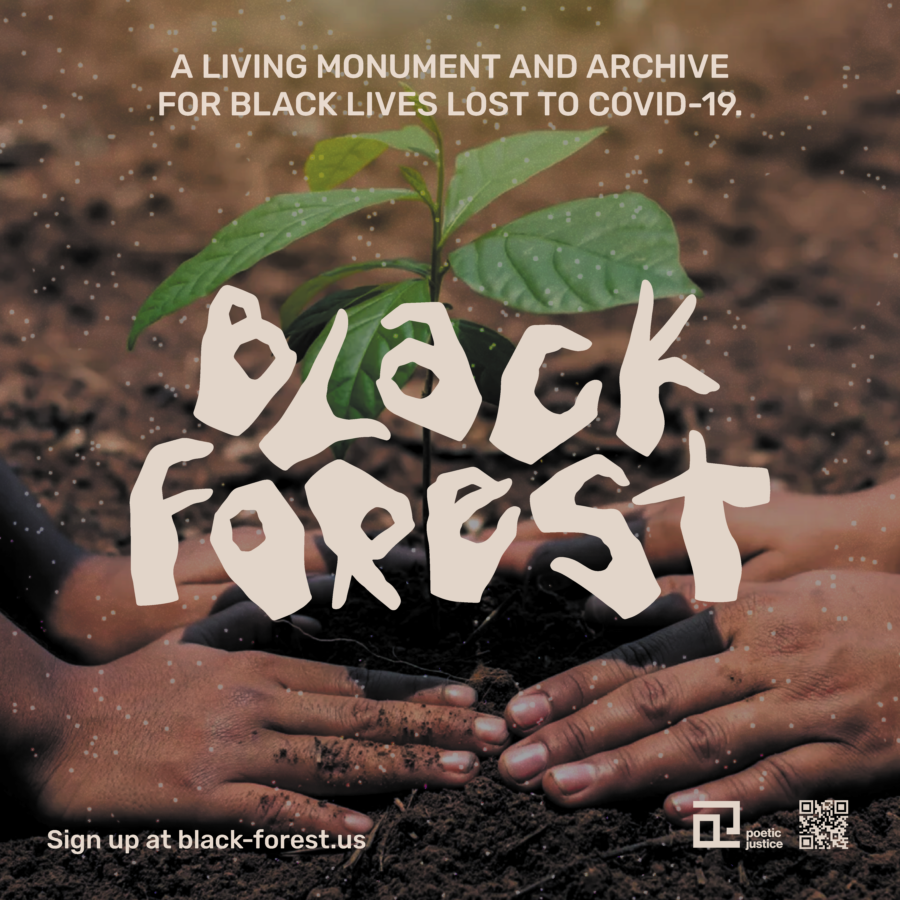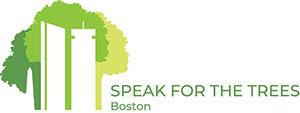
Ekene Ijeoma and Poetic Justice Group are organizing a plant-in for Black Forest in Boston in collaboration with Speak for the Trees and local volunteers. We’re collecting the names and stories of Black lives lost to Covid-19 in Dorchester and planting about 12 trees for them in Loesch Family Park on Friday, April 28th, from 12-4 pm.
Black Forest is a nationwide participatory public artwork recording the names and stories of the over 100,000 Black lives lost to Covid-19 in the US and planting trees for them in their neighborhoods. As a living monument and archive, it will include name story call-ins, tree plant-ins and giveaways, a phone hotline, a web map, sound and video artworks, and booklets on topics ranging from Black urban forestry to Black feminist ecology.
Last November, we planted the first trees in Detroit in collaboration with Greening of Detroit and over 60 local volunteers, including a few relatives of those lost. We campaigned door to door and canvassed the streets to collect the names of over 60 Black lives lost in the region and plant 60 trees, including Eastern Redbud, Blackgum, Swamp White, and Yellowwood. The relatives were invited to say the names of those lost, hand number and date the Black Forest sticker labels, and stick them on the tree guards. The labels include our hotline, website, and a QR code. When our 24/7 toll-free story hotline is released in the fall, we’ll invite locals to record the names and stories of those they lost. These recordings will be featured in an evolving live-streamed sonic portrait and mediation on Black life that can be accessed online and over the phone.
We’re looking for locals to participate in this historical and monumental work by signing up at black-forest.us. We’re organizing events in Black neighborhoods in all 50 states, so please share.
Ekene Ijeoma is an artist, Assistant Professor of Media Arts and Sciences at MIT, and the Founder/Director of Poetic Justice Group at Media Lab. He researches social, political, and environmental issues and develops sound, video, sculpture, installation, and performance using poetic and computational strategies. Currently, with Poetic Justice Group, he’s researching how art can scale to that of injustice through developing works that are public, community-driven, multisite, and networked. These works include a series of software-generated sound and video composed of crowdsourced recordings that are remixed and live-streamed 24/7 over the phone and online, for example a-counting.us.
